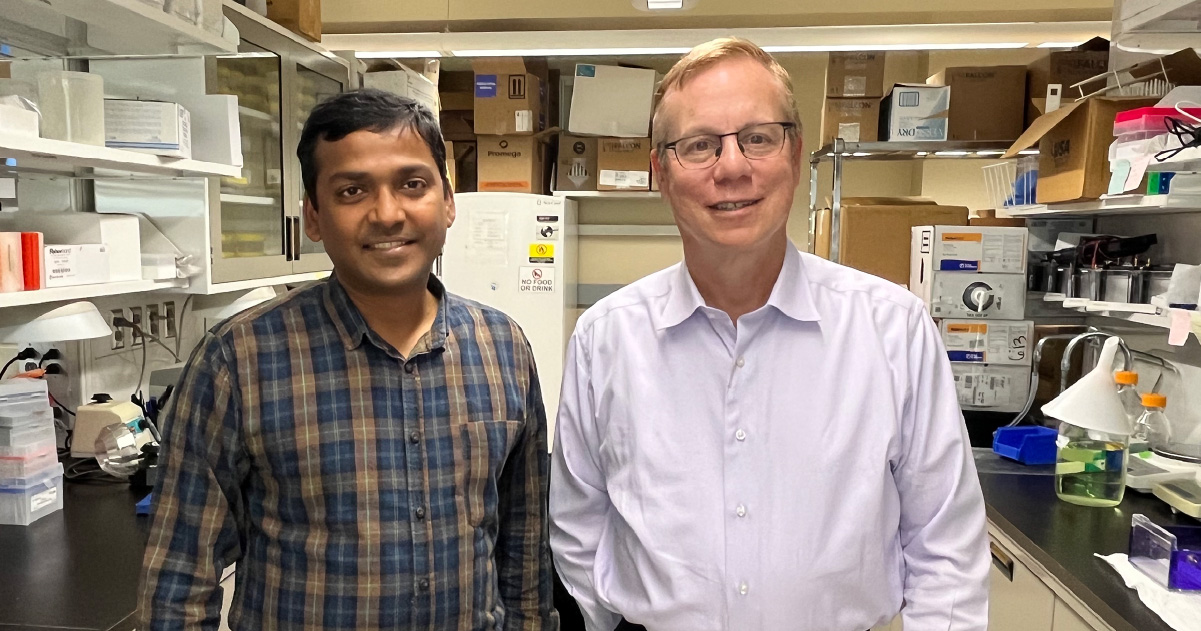Ajay Pobbati, PhD, Brian Rubin, MD, PhD, and colleagues at the Cleveland Clinic published their findings from the study “CDK9 inhibition by dinaciclib is a therapeutic vulnerability in epithelioid hemangioendothelioma” in Clinical Cancer Research, September 13, 2024. This study, funded in part by a grant from The EHE Foundation, provides a strong rationale for investigating dinaciclib, a cyclin-dependent kinase (CDK) inhibitor, as a potential therapeutic candidate for the treatment of aggressive EHE.
The publication discusses the anti-tumorigenic properties of dinaciclib demonstrated in in vitro and in vivo EHE models. Some of the findings from the study are:
- Dinaciclib facilitates TAZ-CAMTA1 (TC) degradation by inhibiting CDK9, a transcriptional CDK.
- Dinaciclib treatment mobilizes TC, which allows it to shuttle between the nucleus and cytoplasm, and is eventually degraded by proteasomes.
- This process suppresses the levels of TC-regulated transcripts and cell viability, promotes apoptosis, and reduces the area of metastatic lesions.
Dinaciclib is FDA-approved for use in combination therapy to treat hormone-receptor-positive breast cancer and has been granted orphan drug status for chronic lymphoblastic leukemia (CLL). It is currently being studied in clinical trials for other various cancers.
This study and these findings importantly build on a small seed grant given by The EHE Foundation in 2022 for a study that aimed to identify FDA-approved drugs for the treatment of EHE. This study identified CDK inhibitors as regulators of TC location and stability. The EHE Foundation is grateful to Dr. Pobbati, Dr. Rubin, Dr. Nancy Wang, and colleagues in the Rubin Lab at Cleveland Clinic for their commitment to EHE research and for publishing these findings.

